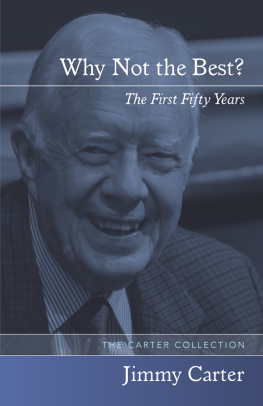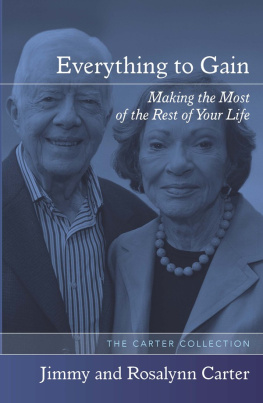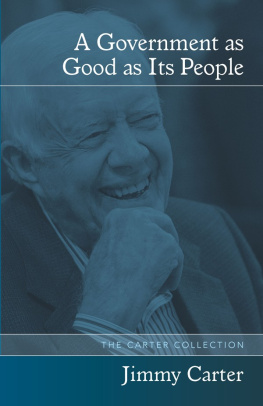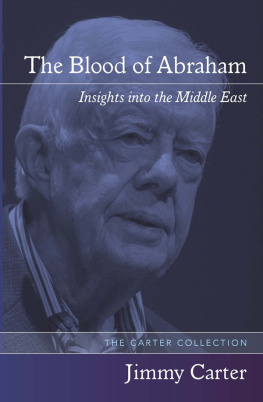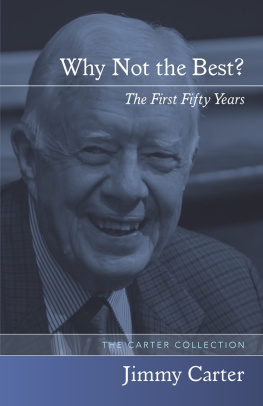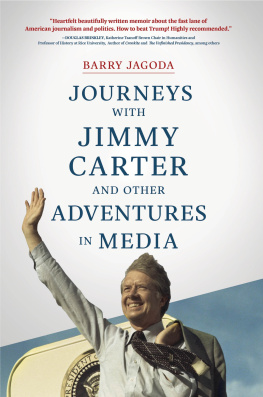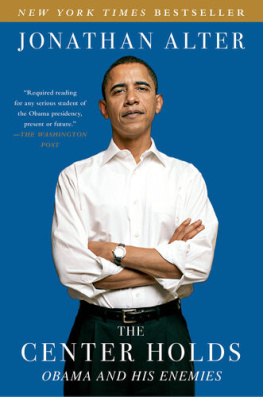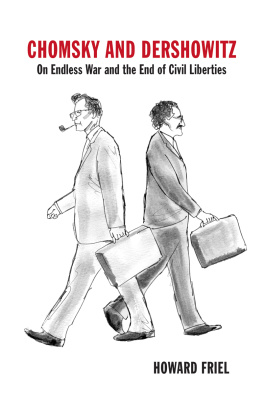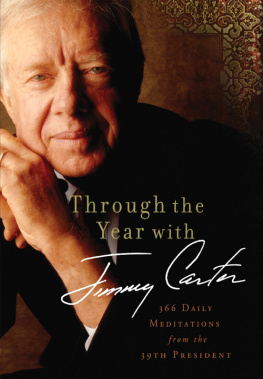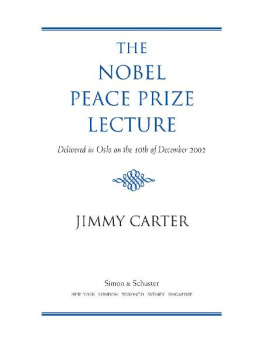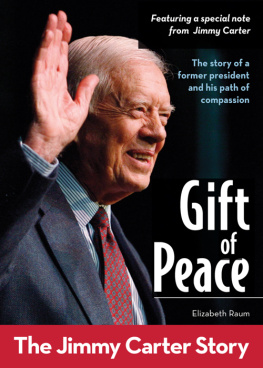Amber Roessner - Jimmy Carter and the Birth of the Marathon Media Campaign
Here you can read online Amber Roessner - Jimmy Carter and the Birth of the Marathon Media Campaign full text of the book (entire story) in english for free. Download pdf and epub, get meaning, cover and reviews about this ebook. year: 2020, publisher: LSU Press, genre: Politics. Description of the work, (preface) as well as reviews are available. Best literature library LitArk.com created for fans of good reading and offers a wide selection of genres:
Romance novel
Science fiction
Adventure
Detective
Science
History
Home and family
Prose
Art
Politics
Computer
Non-fiction
Religion
Business
Children
Humor
Choose a favorite category and find really read worthwhile books. Enjoy immersion in the world of imagination, feel the emotions of the characters or learn something new for yourself, make an fascinating discovery.

- Book:Jimmy Carter and the Birth of the Marathon Media Campaign
- Author:
- Publisher:LSU Press
- Genre:
- Year:2020
- Rating:3 / 5
- Favourites:Add to favourites
- Your mark:
- 60
- 1
- 2
- 3
- 4
- 5
Jimmy Carter and the Birth of the Marathon Media Campaign: summary, description and annotation
We offer to read an annotation, description, summary or preface (depends on what the author of the book "Jimmy Carter and the Birth of the Marathon Media Campaign" wrote himself). If you haven't found the necessary information about the book — write in the comments, we will try to find it.
Jimmy Carter and the Birth of the Marathon Media Campaign — read online for free the complete book (whole text) full work
Below is the text of the book, divided by pages. System saving the place of the last page read, allows you to conveniently read the book "Jimmy Carter and the Birth of the Marathon Media Campaign" online for free, without having to search again every time where you left off. Put a bookmark, and you can go to the page where you finished reading at any time.
Font size:
Interval:
Bookmark:
JIMMY
CARTER
and the Birth of the
Marathon Media Campaign
MEDIA AND PUBLIC AFFAIRS
Robert Mann, Series Editor
JIMMY
CARTER
and t h e Birth of t h e
Marathon Media Campaign
AMBER ROESSNER
Louisiana State University Press Baton Rouge
Published with the assistance of the V. Ray Cardozier Fund
Published by Louisiana State University Press
Copyright 2020 by Louisiana State University Press
All rights reserved
Manufactured in the United States of America
First printing
Designer: Barbara Neely Bourgoyne
Typeface: Ingeborg
Printer and binder: Sheridan Books
Library of Congress Cataloging-in-Publication Data
Names: Roessner, Amber, 1980 author.
Title: Jimmy Carter and the birth of the marathon media campaign / Amber Roessner.
Description: Baton Rouge : Louisiana State University Press, [2020] | Series: Media and public affairs | Includes bibliographical references and index.
Identifiers: LCCN 2019052426 (print) | LCCN 2019052427 (ebook) | ISBN 978-0-8071-7079-3 (cloth) | ISBN 978-0-8071-7360-2 (pdf) | ISBN 978-0-8071-7361-9 (epub)
Subjects: LCSH: Carter, Jimmy, 1924 | PresidentsUnited StatesElection1976. | United StatesPolitics and government19741977.
Classification: LCC E868 .R64 2020 (print) | LCC E868 (ebook) | DDC 973.926092dc23
LC record available at https://lccn.loc.gov/2019052426
LC ebook record available at https://lccn.loc.gov/2019052427
The paper in this book meets the guidelines for permanence and durability of the Committee on Production Guidelines for Book Longevity of the Council on Library Resources. 
To Joseph and the children of his generation, in hopes that you will demand honest leaders, who represent the peoples interest; muckraking journalists, who value truth over profits and partisanship; and a society that privileges civil discourse over rancor.
CONTENTS
PREFACE
Plugging In and Tuning Out the Election Night Stalemate
Teletypes chattered in the background as the camera zoomed in. Well, the first election returns are in, the anchorman said. Gerald Ford, zero. Jimmy Carter, zero.
Despite widespread apathy, newspaper headlines encouraged readers to vote the network of their choice to watch returns trickle in for the neck-and-neck battle.
Analysts accurately identified interest in the outcome and the stakes of the electionthe health of the two-party system, the performance of the fourth estate, and civic engagement in a participatory democracybut predictions of increased public participation were flawed.
Post-reform presidential campaigning was a whole new ballgame, New York mayor John Lindsay observed, and underdogs enjoyed a competitive edge in a cultural climate favoring antiestablishment outsiders.
Declaring victory for network executives meant delivering election night specials designed to boost standings in pivotal ratings wars, which determined advertising revenue and directly contributed to their financial viability.
Election night represented a special opportunity for ABC News president Bill Sheehan and ABC Evening News producer Bill Lord to recast their perennial underdog newscast through the art of infotainment. Since midcentury, presidential candidates had shifted to razzle-dazzle campaigns to spellbind potential voters, and incoming news executives hoped to similarly mesmerize audiences with star power. Hence, White and Harris cashed in on their celebrity insider status and weighed in on returns alongside ABCs celebrity news team.
During the first segment of ABCs Political Spirit of 76, Walters first turned to White, the journalist who revolutionized the art of political reporting with his The Making of the President series, posing the question on many minds: would the election be a squeaker or a landslide?
Whites reluctance to prognosticate stemmed not from his characteristic style, but from his uncharacteristic absence from the trail in 1976. After offering a comprehensive, backstage look at four presidential races, contributing to a surge in professional and public interest in his new brand of insider reporting, he grew weary of the mechanical, behind-the-scenes campaign chronicles produced by his host of imitators.
Ensconced in early returns data from Kentucky and Indiana minutes later, Harris instead exuded confidence in his ability to predict and interpret outcomes.
After engaging in final acts of imagecraft in an extraordinary marathon campaign, Ford and Carter discovered that analyst predictions were prescient: in an election cycle favoring antiestablishment outsiders, long-shot contenders claimed unexpected victories.
With news he captured the necessary 270 electoral college votes ringing in his ears, Carter celebrated the victorious end to his four-year journey with family and staff. Elite frontline reporters hailed the peanut farmer from Plains as a media genius in the days ahead for staging an unprecedented political miracle.
Carter sought to thank supporters and pledged to make America great... again in a ten-minute message of unity offered by live feed to network audiences, but millions had already tuned out.
ACKNOWLEDGMENTS
This decade-long intellectual journeylasting longer than Carters campaign and presidency combinedinvolved analysis of thousands of media texts produced between 1968 and 1980, thousands of documents located in hundreds of archival boxes, and dozens of in-depth interviews with Jimmy Carters 1976 campaign staff and frontline reporters.
Archival travel is expensive, and I received generous financial support from the American Journalism Historians Associations 2011 Joseph McKerns Research Grant Award; American Journalism s 2014 Rising Scholar Award; Emory Universitys 2015 MARBL Fellowship; and the University of Tennessees 2015 Professional Development Award, 2017 Chancellors Grant, and the College of Communication and Information Deans Summer Research Fund. Along the way, I encountered unsung heroes of all historiesarchivists (in particular, Keith Shuler at the Jimmy Carter Presidential Library and Scotty Kirkland at the Alabama Department of Archives and History) who extended invaluable guidance and support. Likewise, research assistants, including Denae DArcy, Natalie Manayeva, Jackie Cameron, Lindsey Bier, Monique Freemon, and Lexie Little, offered crucial assistance.
Thanks to Jimmy Carter Presidential Library Director of Research Steven Hochman for encouraging President Carter to take a few minutes to chat with an unknown scholar from Winder, Georgia, and to President Carter and members of his campaign staff, including issues specialist Stuart Eizenstat, press aide Rex Granum, television advisor Barry Jagoda, advertising specialist Gerald Rafshoon, and campaign aide Greg Schneiders, and frontline reporters, including David Alpern, Tom Brokaw, Eleanor Clift, Stanley Cloud, Sam Donaldson, Brooks Jackson, Carl Leubsdorf, Walter Mears, Lynne Olson, Wes Pippert, Bob Schieffer, Curtis Wilkie, Jules Witcover, Judy Woodruff, and Pulitzer Prize-winning editorial cartoonists Tony Auth and Paul Szep, who generously contributed time and perspectives, an accurate attribution being their only promised reward. Though, as one participant noted, memories fade with time, these interviews added a rich layer of context to my analysis, and keeping in mind Donaldsons reminder that any producer can make their subject sound like a sage or the village idiot, I have sought, above all, to quote each individual accurately and in context.
I was fortunate to have the opportunity to work out key arguments based on instrumental feedback from mentors, colleagues, and supportive audiences in a variety of forums. Brian Creech generously read and commented on this entire manuscript, and Im eternally indebted for his brilliant insights. Janice Hume, Jay Hamilton, Karen Russell, and Kristin English, mentors and friends from my days at the University of Georgia, read portions of early drafts and extended advice, support, and encouragement.
Next pageFont size:
Interval:
Bookmark:
Similar books «Jimmy Carter and the Birth of the Marathon Media Campaign»
Look at similar books to Jimmy Carter and the Birth of the Marathon Media Campaign. We have selected literature similar in name and meaning in the hope of providing readers with more options to find new, interesting, not yet read works.
Discussion, reviews of the book Jimmy Carter and the Birth of the Marathon Media Campaign and just readers' own opinions. Leave your comments, write what you think about the work, its meaning or the main characters. Specify what exactly you liked and what you didn't like, and why you think so.

